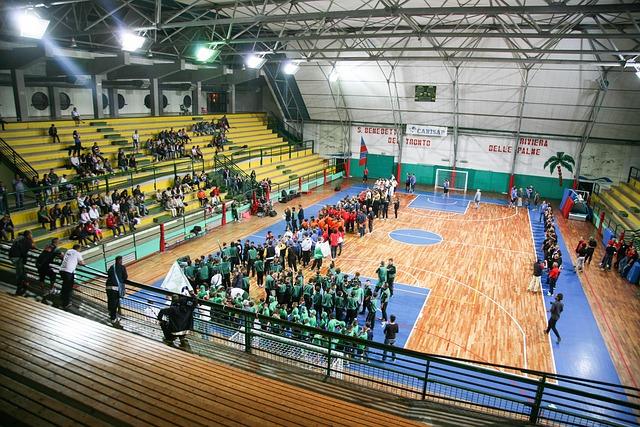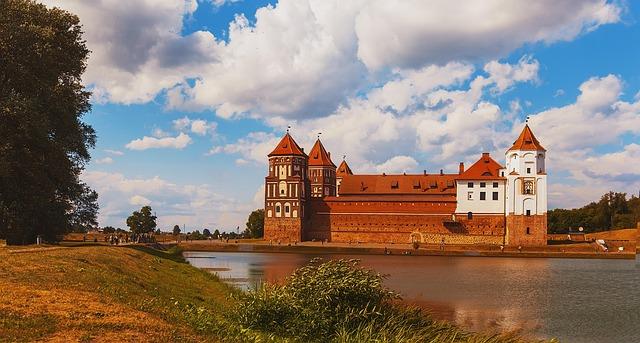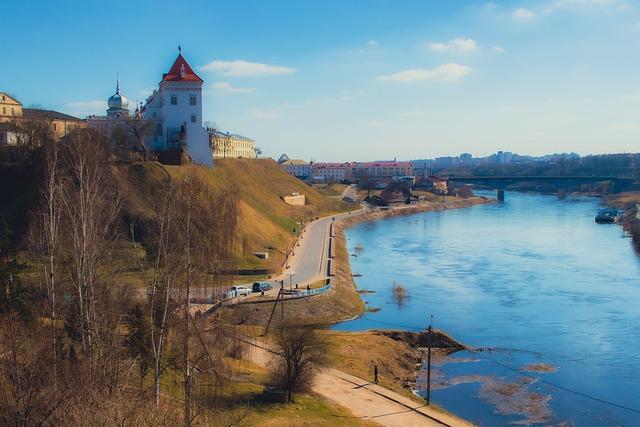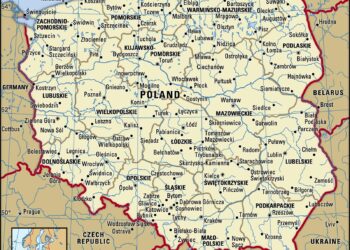In a move widely condemned by teh international community, Belarusian President Alexander Lukashenko has been ‘inaugurated’ for a new term following elections criticized as deeply flawed and undemocratic. The results of the recent vote, held amid widespread allegations of fraud and repression, have been branded as a “sham” by numerous observers, including human rights organizations and foreign governments. As Lukashenko consolidates his grip on power, the implications for Belarusian civil society and regional stability grow increasingly concerning. This article delves into the details of the election process, the reactions to the purported inauguration, and what this means for the future of Belarus amid ongoing tensions with the West.
Lukashenkos Controversial Inauguration Amid International Condemnation
In a move that has drawn widespread condemnation, Belarusian leader Alexander Lukashenko has been ‘inaugurated’ for yet another term following elections widely criticized for rigging and a lack of transparency.Human rights organizations and various Western governments have denounced the legitimacy of the elections, branding them as a “sham” and emphasizing the need for a democratic process. The reaction from the international community has been swift, with numerous countries and entities issuing statements that highlight the oppressive tactics employed during the electoral period.
Critics argue that the events leading up to this inauguration where characterized by notable unrest and suppression of dissent, with reports of unfair treatment and persecution of opposition figures. Key points of contention include:
- Election Integrity: Lack of self-reliant observation and evidence of vote tampering.
- Human Rights Violations: arrests and intimidation of political rivals and activists.
- International Response: Calls for increased sanctions against Lukashenko’s regime.
| Controversial Event | Date | International Reaction |
|---|---|---|
| Presidential Elections | August 9, 2020 | Widespread condemnation from EU and US |
| Inauguration Ceremony | September 23, 2020 | Public protests across Belarus |
| Imposed Sanctions | Various Dates | Targeting officials and state-owned enterprises |

The Implications of Belaruss Sham Elections on Regional Stability
The recent electoral process in Belarus has raised significant concerns regarding the country’s political legitimacy, with many analysts citing the results as a mere facade for continuing autocratic rule. Alexander Lukashenko, who has been in power since 1994, orchestrated a series of electoral maneuvers that have been widely condemned as rigged. This situation not only undermines the democratic fabric of Belarus but also poses potential threats to regional stability, particularly in Eastern europe, where neighboring countries may feel the ripple effects of Belarus’s political crisis. Key implications include:
- Increased Authoritarianism: The maintenance of lukashenko’s regime emboldens other authoritarian leaders in the region.
- influx of Refugees: Political repression may trigger mass migration towards neighboring countries, straining their resources.
- destabilization of Borders: The likelihood of civil unrest could create spillover effects in nearby nations, challenging their security frameworks.
Moreover, the international community’s response to these sham elections can substantially impact Belarus’s relations with bordering nations. Economic sanctions imposed by Western powers may intensify the existing tensions between Belarus and Ukraine, Poland, and Lithuania, driving these countries to take more assertive stances either in support of democratic movements or against perceived aggression from the government in Minsk. Analyzing the economic landscape, potential outcomes include:
| Potential Outcomes | Impact Level |
|---|---|
| Heightened Military Presence | high |
| Increase in Cyber threats | Moderate |
| Economic Isolation for Belarus | High |

Analyzing the Oppositions Response and Resilience to Authoritarian Rule
The recent events surrounding the so-called inauguration of Alexander Lukashenko expose the complex dynamics between authoritarianism and opposition movements. This latest round of elections, widely regarded as a facade, has prompted responses that highlight both the fragility and tenacity of dissent in Belarus. Key factors contribute to this landscape:
- Mobilization of Grassroots Activism: Despite state repression, various grassroots organizations have intensified their efforts to engage citizens and rally support against the regime.
- International Solidarity: The response from the global community has provided a lifeline; international sanctions and public condemnations serve as a dual source of hope and pressure for local activists.
- Social Media Platforms: Digital activism gains traction, allowing dissenting voices to circulate information and coordinate resistance activities, circumventing state-controlled media.
However, the resilience of the opposition is not without its challenges. Repression tactics employed by the Lukashenko regime create an habitat of fear, which complicates mobilization efforts. The following table outlines the key challenges facing opposition groups:
| Challenge | Description |
|---|---|
| State repression | increased arrests, crackdowns on protests, and surveillance. |
| Fragmentation | Diverse ideologies within opposition could hinder unified action. |
| Lack of Resources | Opposition groups often struggle with funding and mobilization logistics. |
Given the complexity of these circumstances, the future of opposition in Belarus hinges on their ability to adapt, strategize, and maintain momentum amidst overwhelming odds. In contrast, the resilience demonstrated by various movements indicates that even in the face of authoritarian rule, the fight for democracy continues to simmer beneath the surface.

The Role of International Actors in Addressing Human Rights Violations in Belarus
The ongoing political turmoil in Belarus, following the controversial re-election of President Alexander lukashenko, has drawn significant attention from international actors who have taken various steps to address the human rights violations rampant in the country. The situation has prompted a collective response that includes diplomatic pressure, economic sanctions, and advocacy for accountability. Key international organizations,such as the United Nations and the European Union,have condemned the election results and called for an end to the violent repression of peaceful protests and dissent.Their initiatives often focus on:
- Issuing Statements: Public declarations denouncing the actions of the Lukashenko regime.
- Imposing Sanctions: Targeted economic penalties against officials and entities responsible for human rights abuses.
- Supporting Civil Society: Providing funding and resources to NGOs that document abuses and support victims.
Moreover, the involvement of regional actors has been crucial in exerting influence over Belarus. Countries in the vicinity, notably Lithuania and Poland, have become safe havens for Belarusian dissidents and activists, further amplifying the call for democratic reforms. Collaborative efforts, such as joint sanctions packages and coordination of humanitarian aid, showcase the solidarity among these nations in their commitment to upholding human rights. The combined pressure from both political and civil society fronts emphasizes the importance of international collaboration in addressing such violations, where the potential for change within Belarus hinges on sustained global attention and action.

Recommendations for Strengthening Democratic Movements and Civil Society in Belarus
In the wake of the recent elections in Belarus, where the legitimacy of the results has been widely questioned, it is crucial to empower democratic movements and strengthen civil society. Supporting grassroots initiatives is vital; organizations that promote civic education and encourage voter participation can lay the groundwork for a more engaged citizenry. This can be achieved by:
- providing funding for local NGOs dedicated to human rights and democratic reforms.
- Facilitating training programs focused on leadership and advocacy skills.
- Encouraging collaborations between Belarusian groups and international civil society organizations.
Additionally, the international community plays a crucial role in supporting the Belarusian struggle for democracy. This can be approached thru:
| Action | Description |
|---|---|
| Imposing targeted sanctions | To pressure the regime by identifying key officials and entities responsible for the repression. |
| developing diplomatic channels | To create a platform for dialog among opposition leaders and international actors. |
| Enhancing media support | to ensure that independent journalism flourishes and is accessible to all citizens. |
The Way Forward
the controversial “inauguration” of Alexander Lukashenko, following a series of elections widely denounced as fraudulent, underscores the ongoing political turmoil in Belarus. Despite facing international condemnation and a domestic uprising,Lukashenko’s regime continues to assert its control,raising concerns about the future of democracy and human rights in the region. As the international community reflects on the implications of this latest progress, the resilience of the Belarusian people in their struggle for democratic governance remains a pivotal factor in the country’s future trajectory. The implications of these events extend beyond Belarus, signaling potential shifts in regional stability and the global response to authoritarianism. Continued scrutiny and support for democratic aspirations in Belarus will be crucial as the situation unfolds.















